We’re in the far north-east of Namibia, in Caprivi, a strip of land that lies between Botswana to the south and Angola / Zambia to the north. From east to west, the strip is about 450km long, and at its narrowest, it’s only about 50km wide. The Caprivi Strip was acquired by the Germans in a land exchange with Britain in the late 19th Century because they wanted access to the Zambezi River and their East African colony in Tanganyika (now Tanzania), apparently forgetting that the Victoria Falls would make it impossible to get through.
Being in the far east of Namibia, the time zone has switched to ‘Caprivi time’ – which is the Botswana/South Africa time zone. We’re now 7.5 hours behind ADL time. We’re spending a couple of nights at the Nunda River Lodge, which was recommended by our fellow campers at Kunene. We’re camped right on the eastern bank of the Okavango River, and across on the other bank is a bloat of hippos (I don’t know if ‘bloat’ is the official collective term for hippos, but in this case, it seems about right). They spend most of their time lying down very close to each other, but whenever a tour boat stops nearby, some of them get up to give the tourists a bit of a show. We think we heard them during the night over on this side of the river, and there’s grass on the bank that looks like it’s been mown by hippos. They are vegetarians and even though there seem to be a lot of stories about how dangerous they are to humans, they may be exaggerated. We won’t bother them, so hopefully they will leave us alone.
We’ve spent the last couple of days driving along the Trans-Caprivi highway. We spent a night near Rundu at the Kaisosi River Lodge campground which was okay, the campsites were very close together and thankfully they weren’t all occupied or it would have been VERY squeezy. Rundu has a population of around 80,000 and is the 2nd largest town in Namibia, after Windhoek. It was originally built as a bus stop in the 1940s to transport local labour to German-owned farms. Apart from a couple of sealed roads, most of the streets are sand (yes, more dust!). A new shopping centre is being built on one of the sealed streets.
As we drove to Rundu on Friday afternoon, we passed lots of small villages with dwellings built of sticks and grass roofs. They seem to be arranged in extended family units, with multiple huts inside a fenced-off area about the size of an Australian house block. Some huts are open – just some vertical sticks and a roof, others are closed. Different huts for different uses – sleeping, eating, storage. We saw loads of people walking along the highway. It took us a little while, but we realised that they were getting water from the nearest water tanks, which were often several kms away. I guess this is a daily occurrence for the villagers – lugging water. The most amazing one we saw was a woman just about to cross the highway with a full 20 litre drum of water on her head, breastfeeding a baby! Yesterday morning, Saturday, was washing day and we saw women and children carrying washing tubs full of clothes to their nearest water tank to wash, then take home and dry. We take such a simple thing as having potable running water in our homes for granted, don’t we?
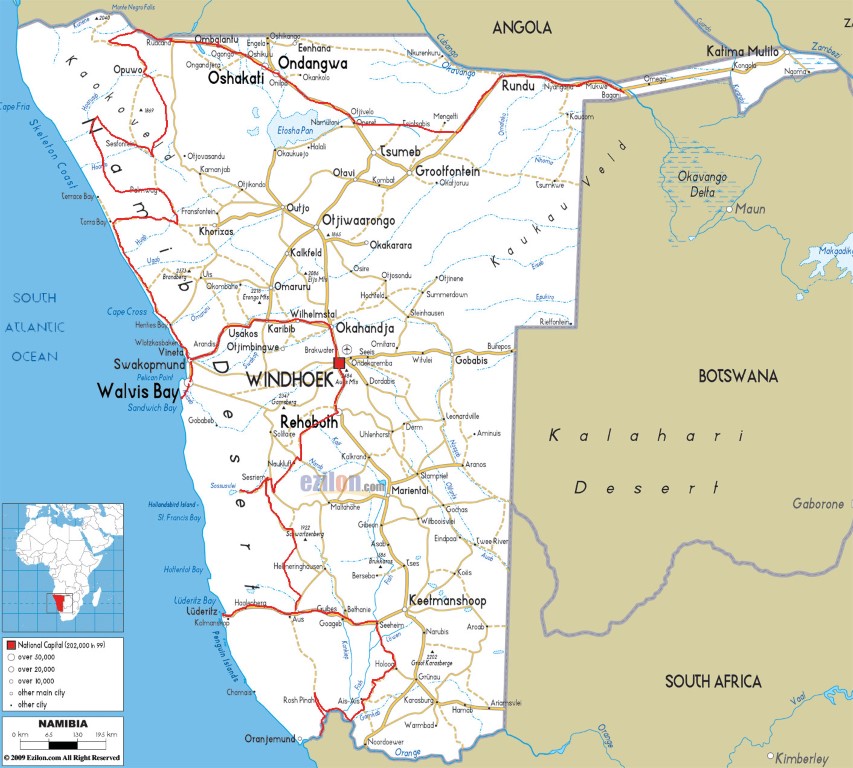
The trip though Namibia so far
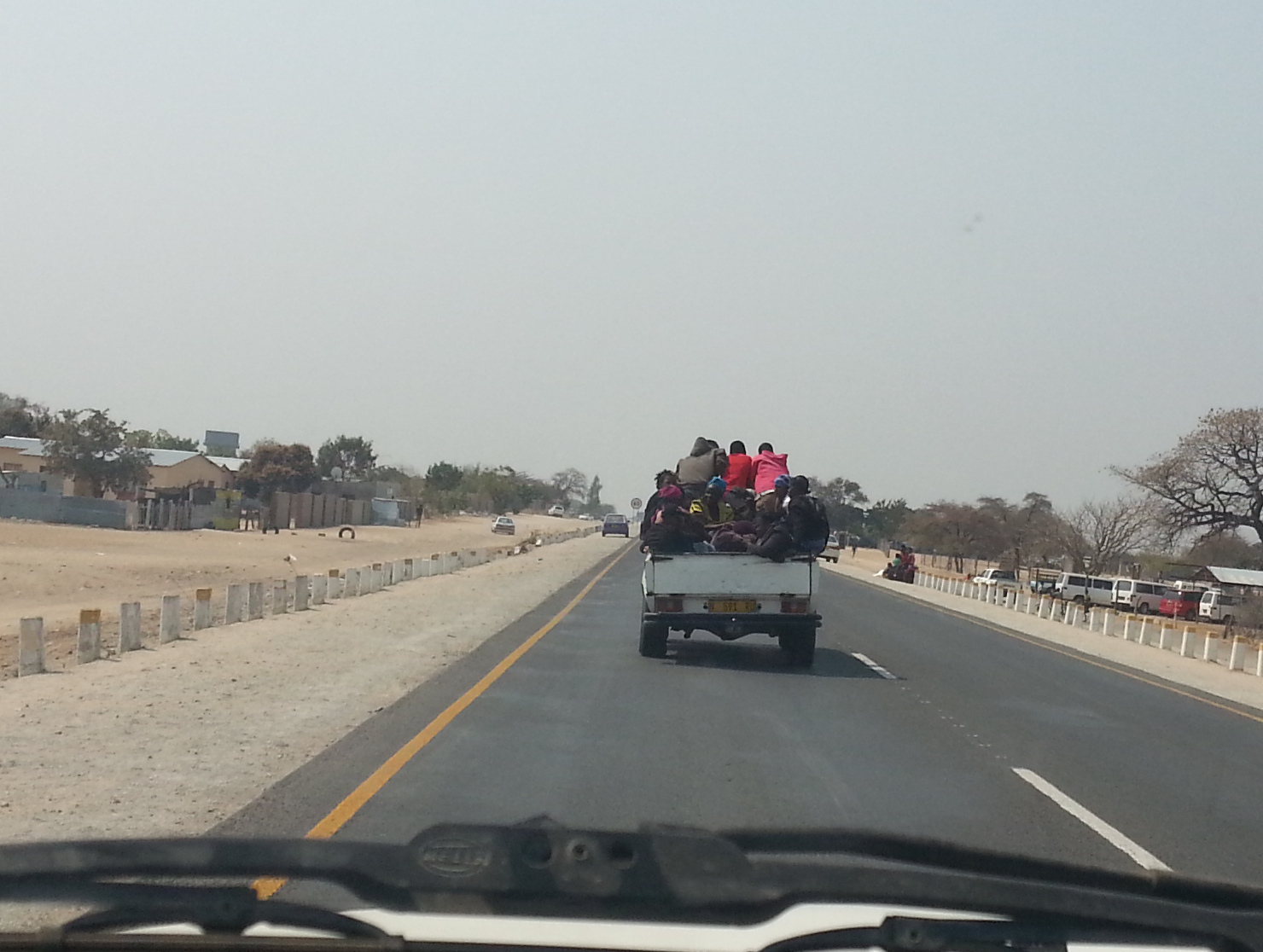
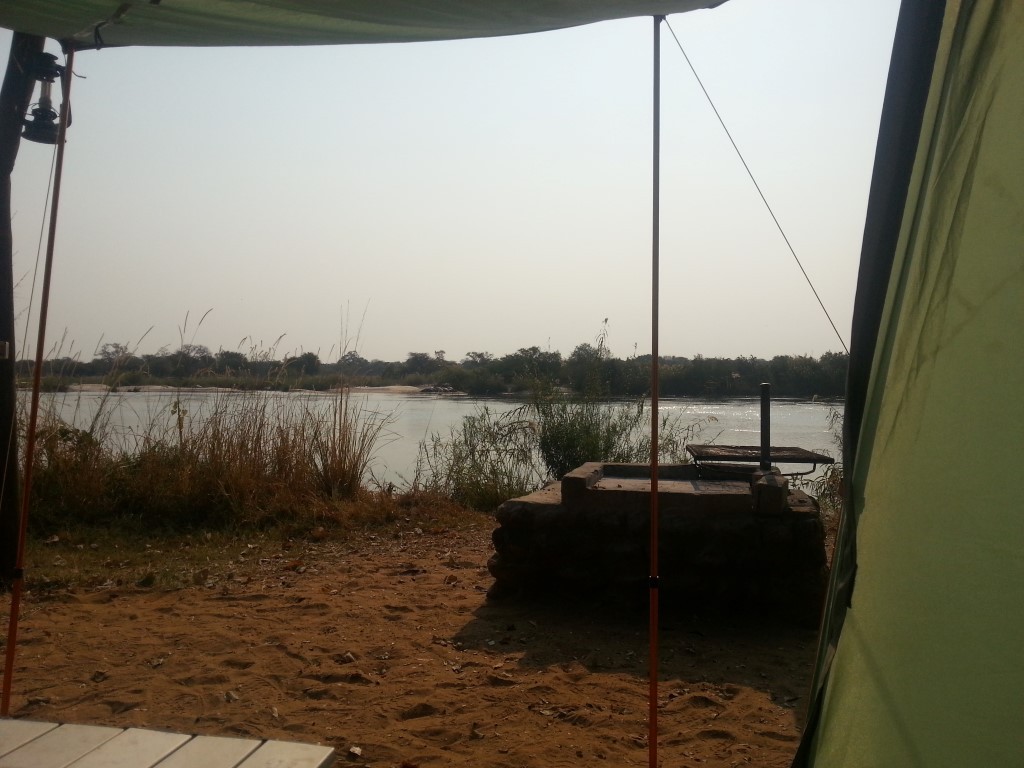
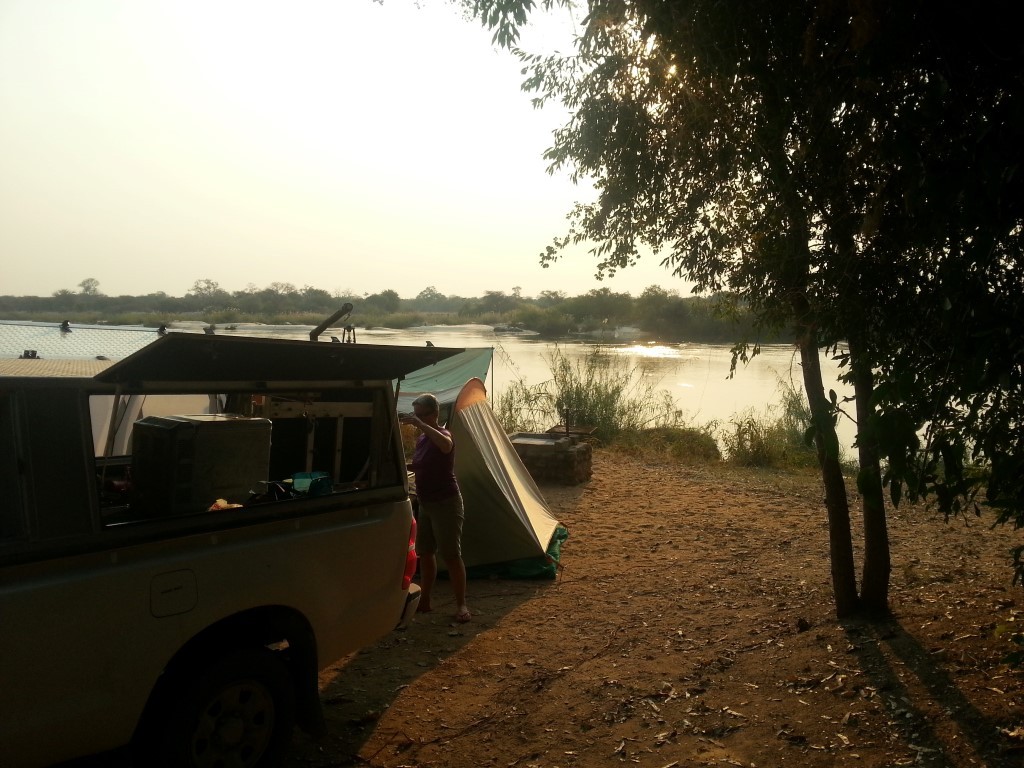
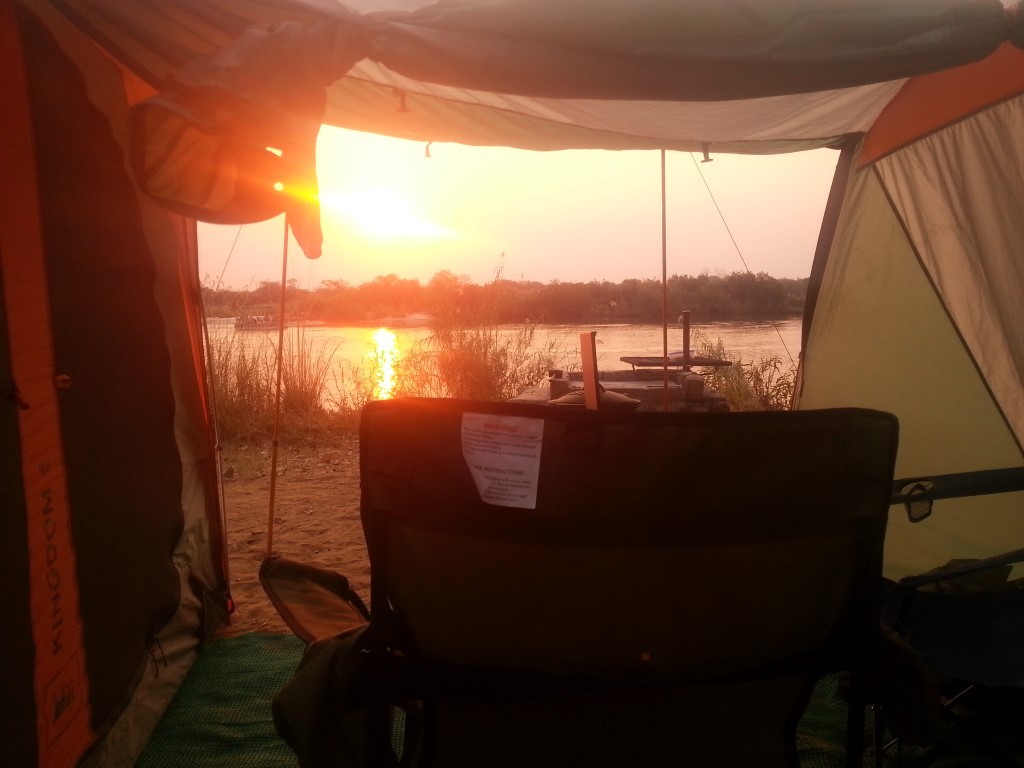
20 litres of water = 20 kilograms when you have a spare moment put 20 kg your head and see how you go what gets me is the amount of water in all these rivers that you have passed yet in this day and age these people do not have running water with all these world bodies that are supposed to be helping these people they need to lift their game when I at school in the 30s 40s we where taught then of the p lite of these African people does not seem much has changed keep motoring on good pics.
I can’t carry anything on my head, let alone 20kg! Getting water is a daily grind for lots of people here. And then there’s the issue of collecting firewood for cooking as well. Not an easy life.
How stupid was that Africa is in the south we are the south so there winters are the same as ours give me time ?
It’s okay Ron, it still confuses me. We’re trying to decide what to do next as it seems the whole of Botswana is completely booked out (a bit like Broome at this time of the year). Lesotho is on the list, but I saw a photo of snow there and thought it would be cold in winter, forgetting that it’s winter NOW!